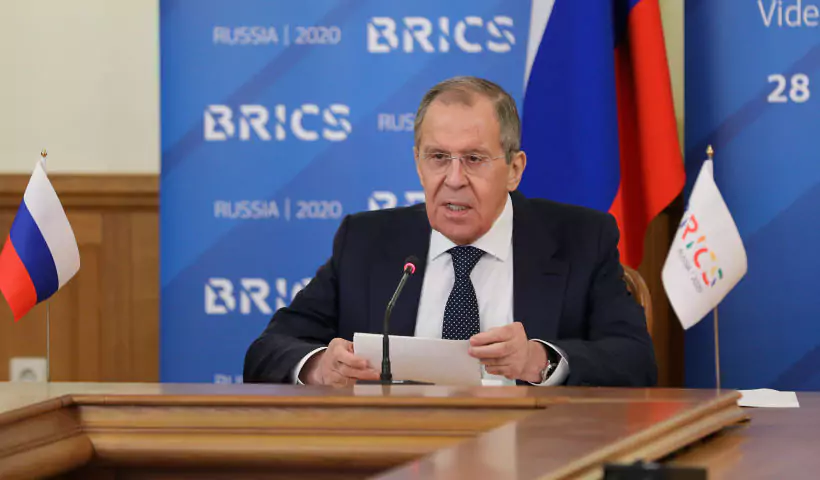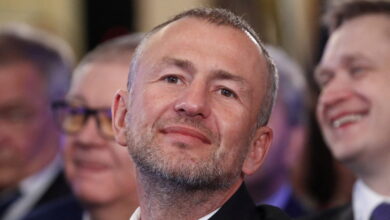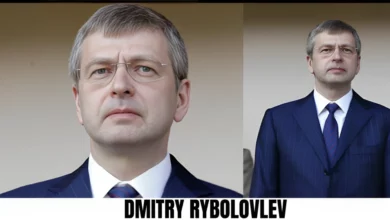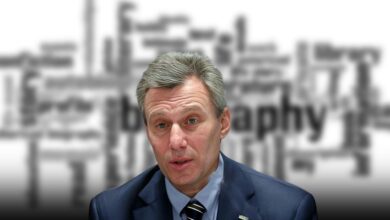Sergey Lavrov’s Biography and His Remarkable Journey as Russian foreign minister

Introduction to Sergey Lavrov
Born in 1950 on March 21, Sergey Viktorovich Lavrov is a well-known diplomat from Russia. He has served as the country’s foreign minister since 2004 and is the longest-serving foreign minister since the Tsarist era. He has played important roles in international relations during his long diplomatic career, and he is acknowledged for his contributions to Russian foreign policy.

Sergey Lavrov, Russia’s foreign minister, served from 1994 to 2004 as its permanent UN representative. He addressed various international issues and participated in negotiations on behalf of Russia. Lavrov’s practical approach to diplomacy led to amicable resolutions of international issues, and he has gained recognition for his services to Russian diplomacy, navigating geopolitical events and advancing Russia’s interests.
Early Life and Education
On March 21, 1950, in Moscow, Sergey Viktorovich Lavrov was born into a family with various regional origins. His father was of Armenian descent, originally from Tbilisi in the Georgian SSR, and went by the surname Kalantaryan. Russian-born Lavrov’s mother was employed by the Soviet Ministry of Foreign Trade after being born in Noginsk, in the Russian SFSR.
During his early school years, Lavrov excelled academically as evidenced by his silver medal-winning high school graduation. Even though physics was his first interest, he ultimately decided to pursue a different course for his further education.
Lavrov enrolled in the Moscow State Institute of International Relations (MGIMO) and graduated with honors in 1972, although he had contemplated enrolling in the Moscow Institute of Physics and Technology or the National Research Nuclear University.
Lavrov concentrated on studying international relations while he was at MGIMO. As he studied Dhivehi, the official language of the Maldives, and Sinhalese, the official language of Sri Lanka, his linguistic abilities increased. Lavrov also developed fluency in French and English.
During his time in college, Lavrov joined a group of students in a student construction brigade that was tasked with building Moscow’s famous Ostankino Tower, a radio and television tower. Lavrov worked with construction brigades of university students in Tuva, Khakassia, and the Russian Far East during his summer vacations.
Notably, Lavrov and his classmates participated in drama productions each semester, exhibiting their creative abilities on the university’s main stage. Moreover, Lavrov tied the knot in his third year of study.
This early stage of Lavrov’s life and education not only prepared him for his subsequent career in diplomacy but also demonstrated his wide range of experiences and interests, which included learning another language, working as a builder, and pursuing artistic endeavors while still in college.
Career Beginnings
Following the regulations in place at the time, which mandated that MGIMO graduates work for the Foreign Ministry for a predetermined amount of time, Sergey Viktorovich Lavrov began his diplomatic career in 1972 after receiving his degree from the Moscow State Institute of International Relations (MGIMO).
Lavrov’s first posting as a diplomat was to the Soviet embassy in Sri Lanka, where he worked as an advisor from 1972 to 1975. Given his expertise in the nation, his assignment was especially pertinent. The Soviet Union and Sri Lanka continued their close economic and market cooperation during this time. Notably, at that time the Soviet Union started Sri Lanka’s natural rubber production.
Lavrov was stationed at the Soviet embassy in Sri Lanka, which also managed relations with the Maldives. Lavrov had a wide range of duties even though the embassy was small, with only 24 diplomats working there. Apart from his advisory role that involved constant analysis of the situation in Sri Lanka, he was also Rafiq Nishonov’s personal secretary, translator, and assistant. Later on, Nishonov rose to the position of Communist Party of the Uzbek SSR’s 12th First Secretary. During his tenure in Sri Lanka, Lavrov attained the diplomatic rank of attaché.
Lavrov’s early years in Sri Lanka as a Soviet diplomat prepared the way for his later international relations career. His varied role at the embassy demonstrated his adaptability and dedication to diplomatic service as he handled a range of duties within the framework of the Soviet Union’s diplomatic relations with the Maldives and its economic cooperation with Sri Lanka.
Personal Life
The intimate details of Sergey Viktorovich Lavrov’s life reveal a complex person behind the scenes of his diplomatic career. Lavrov’s multilingualism is evident in his fluency in a number of languages, including English, Dhivehi, French, Russian, and Sinhala.
An avid athlete, Lavrov takes great pleasure in watching football matches on television, with a special fondness for the Moscow team Spartak Moscow.
Since 1971, Lavrov and Maria Lavrova have been wed. A daughter, Ekaterina Sergeyevna Lavrova, is shared by the couple. Ekaterina, a Columbia University alumna, lived in both the US and UK while her father was employed by the UN. Alexander Vinokurov, a businessman from Russia, is her husband. Their two grandchildren are present.
Since the early 2000s, Lavrov has been connected to a purported relationship with Svetlana Polyakova, his purported mistress.

Polina Kovaleva, Polyakova’s daughter, paid cash for a £4.4 million apartment in London’s Kensington neighborhood in 2016. She was 21 years old at the time. Kovaleva graduated from Imperial College London with a master’s degree. Notably, she was sanctioned by the British government on March 25, 2022, for allegedly receiving “dirty money” as part of larger penalties against corrupt Russian interests after Russia invaded Ukraine in late February 2022.
A peek into Lavrov’s hobbies, ties to his family, and interests outside of diplomacy can be found in his personal life.
USSR Department of International Trade and the UN
Sergey Viktorovich Lavrov joined the USSR’s Section for International Economic Relations as a third and second secretary after returning to Moscow in 1976. Lavrov worked in this capacity as an analyst, and his office conducted business with the United Nations among other international organizations. His experiences during this time improved his comprehension of diplomatic and international economic relations.
Lavrov’s diplomatic career took him to New York City in 1981, where he worked for the Soviet Union’s UN mission as a senior adviser. He gained firsthand experience with international diplomacy and UN dynamics from this posting.
When Lavrov returned to Moscow in 1988, he was appointed Deputy Chief of the USSR’s Section for International Economic Relations. The geopolitical environment was changing dramatically, paving the way for the Soviet Union’s eventual disintegration.
In his role as Director of the Soviet Foreign Ministry’s International Organization from 1990 to 1992, Lavrov navigated the world system and adjusted to post-Cold War realities. His leadership in the international organization, advisory position at the Soviet mission to the UN, and experiences in the USSR Section for International Economic Relations all contributed to his diplomatic expertise.
1992–1994: The Soviet–CIS Transition
Sergey Viktorovich Lavrov had a large role to play as the geopolitical environment changed significantly between 1992 and 1994 during the Soviet-to-CIS transition.
Andrey Kozyrev, who was overseeing international organizations at the time, was named Foreign Minister of the Russian Soviet Federative Socialist Republic (Russian SFSR) in October 1991. This was a turning point in the history of the Soviet Foreign Ministry’s and the Russian SFSR’s Foreign Ministry’s powers, as the former served primarily as a ceremonial role. Foreign ministers from every Soviet republic—aside from Georgia and the Baltic states—met in October 1992 to discuss issues pertaining to the Union of Foreign Ministries.
In 1991, the State Council renamed the Union of Foreign Ministries to the Foreign Ministry of the Soviet Union. In 1992, Lavrov was appointed as deputy foreign minister and later as director of the Department for International Organizations and Global Issues within the newly established Foreign Ministry of the Russian Federation.
His responsibilities expanded to oversee Human Rights, International Cultural Cooperation, and two departments focusing on Commonwealth of Independent States countries, international organizations, and international economic cooperation. This period was marked by the intricate task of managing diplomatic relations during the transition from the Soviet Union to the Russian Federation.
Notably, on June 5, 1992, the President of Russia issued Decree No. 568, which outlined the promotion of Lavrov to the highest diplomatic rank in the Russian Federation—Ambassador Extraordinary and Plenipotentiary—in appreciation of his diplomatic contributions. This promotion demonstrated his increasing stature and proficiency in handling Russia’s diplomatic affairs in the midst of a major geopolitical shift.
Diplomatic Trips
Africa: Lavrov praised the neutral posture of African nations regarding the conflict in Ukraine while visiting Egypt, the Congo, Uganda, and Ethiopia.
Vietnam: He had a meeting with Bùi Thanh Sơn, the foreign minister of Vietnam, and emphasized Vietnam’s role as Russia’s “key partner” in the ASEAN.
Shanghai Cooperation Organization (SCO): Lavrov met Chinese Foreign Minister Wang Yi at the SCO’s meeting of foreign ministers, during which he praised the “traditional friendship” that exists between China and Russia. According to him, Myanmar is a “friendly and longstanding partner.”
UN General Assembly and Visa Issue: Citing problems relating to the removal of employees from the US embassy in Moscow, Lavrov voiced concern about the delays in obtaining US visas for himself and his staff for the UN General Assembly.
UN Security Council: Lavrov backed Brazil’s and India’s applications for permanent membership.
Global Tours: He set out on a series of far-reaching trips, bolstering Russia’s ties in a number of different countries by stopping in South Africa, Swaziland, Angola, Eritrea, Iraq, Mali, Mauritania, and Sudan.
South and Central America: Lavrov traveled to these regions, meeting with the leaders of Brazil, Venezuela, Cuba, and Nicaragua, and showcasing Russia’s political and economic ties with these nations.
BRICS and International Forums: Lavrov engaged with leaders from a range of nations, including Saudi Arabia, during BRICS gatherings in Cape Town and Johannesburg.
Israel-Hamas War: Lavrov criticized Israel for its “indiscriminate” use of force and for breaking international humanitarian law, but he also denounced Hamas’s attack on Israel. He voiced his worries about the violence occurring in the occupied West Bank.
Johannesburg BRICS Summit: Lavrov attended the summit in lieu of President Putin, who was only able to participate via video link because of an International Criminal Court arrest warrant.
Relations between Israel and Russia: Lavrov compared Israel’s goals in Gaza with Russia’s intentions in Ukraine and commended Israeli Prime Minister Benjamin Netanyahu for refraining from openly criticizing Russia.
Sanctions Imposed on Sergey Lavrov
Sanctions Against Sergey Lavrov and His Family: The Russian diplomat Sergey Viktorovich Lavrov has been subject to personal sanctions since February 2022 by a number of nations due to his involvement in the Russian invasion of Ukraine in 2022. Many countries, including the United States, Canada, Japan, New Zealand, Australia, the United Kingdom, and the European Union, have imposed sanctions.

Particular Sanctions: The European Union, Switzerland, the United Kingdom, the United States, Canada, Japan, New Zealand, and Australia have all individually targeted Lavrov with sanctions, a reflection of the global condemnation of Russia’s actions in Ukraine.
Sanctions against the stepdaughter of Lavrov (March 2022): The United Kingdom sanctioned Polina Kovaleva, Lavrov’s stepdaughter, in March 2022. This action highlights the larger plan to target people connected to the Russian leadership.
April 2022 Sanctions on Lavrov’s Wife and Daughter: In April 2022, Canada tightened restrictions on Maria Lavrova, Lavrov’s wife, and Ekaterina Vinokurova, his daughter. Beyond the diplomat, Lavrov’s family members are also subject to sanctions, suggesting a concerted effort to apply pressure.
Added to Australia’s Sanction List: Australia promptly mirrored the sanctions imposed on Ekaterina Vinokurova and included her on their list of individuals subject to sanctions. This emphasizes how the world community is working together to denounce Russia’s actions and hold those connected to the Russian government responsible.
In an effort to exert pressure on prominent Russian government figures and their families, these sanctions are a diplomatic response to Russia’s invasion of Ukraine. The concerted efforts of the international community underscore the gravity of the situation and the need for responsibility for transgressions of international law.








